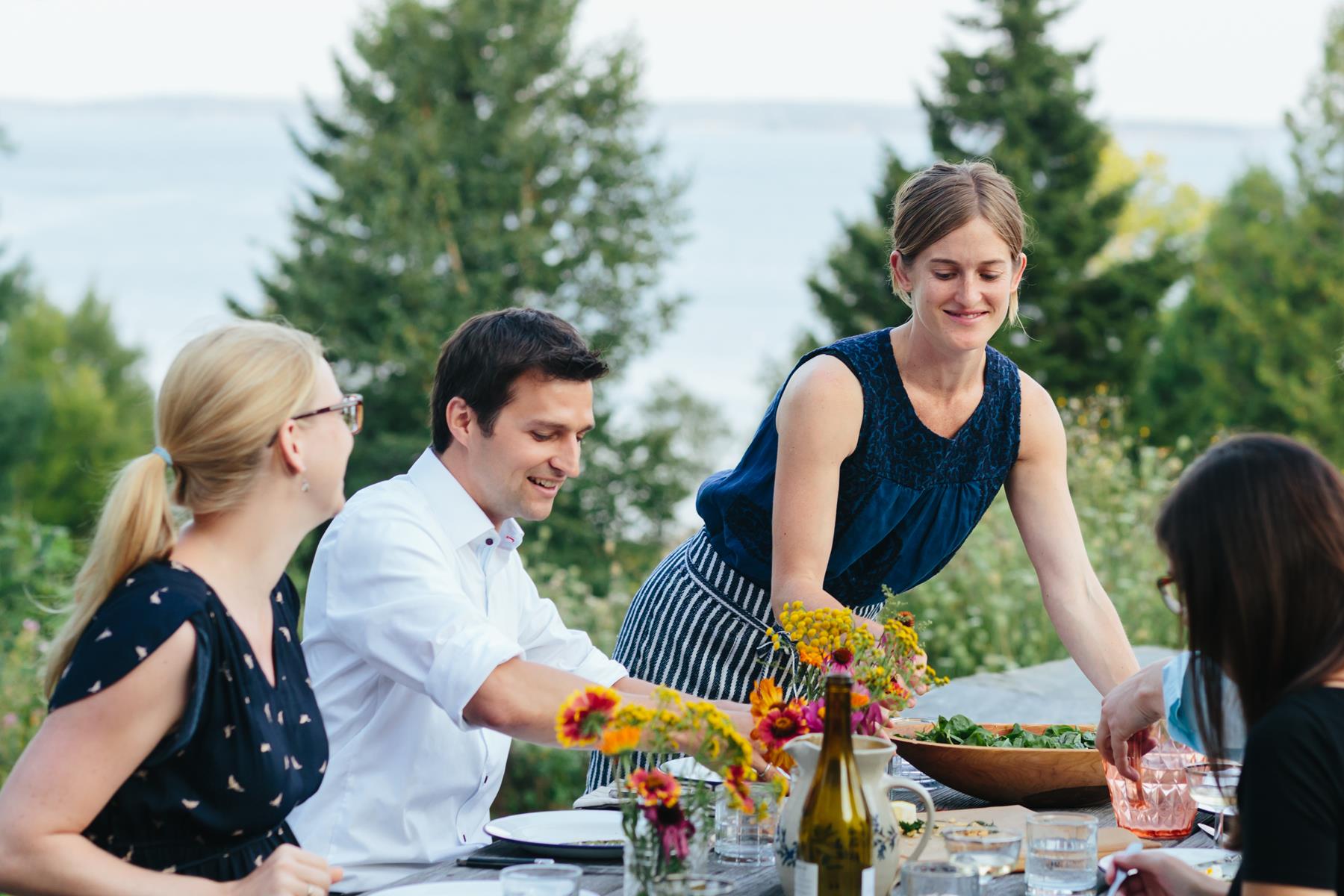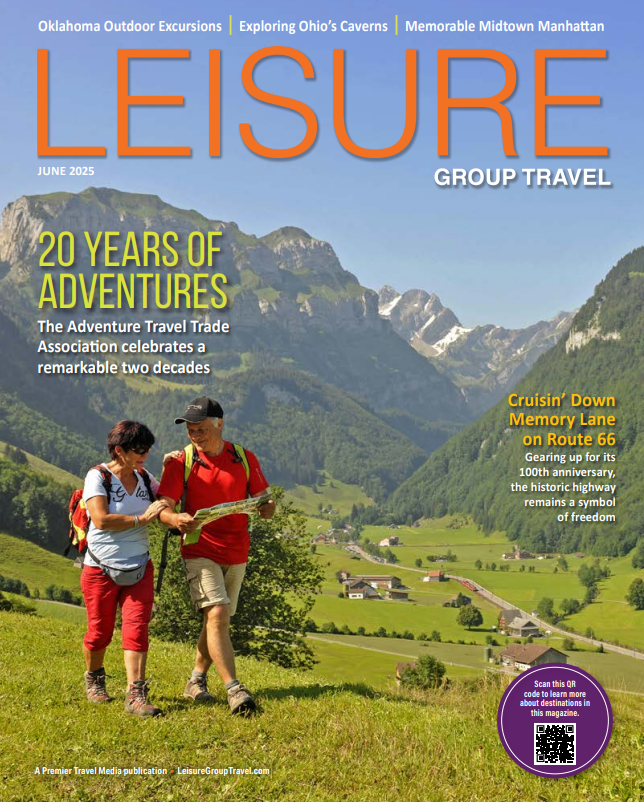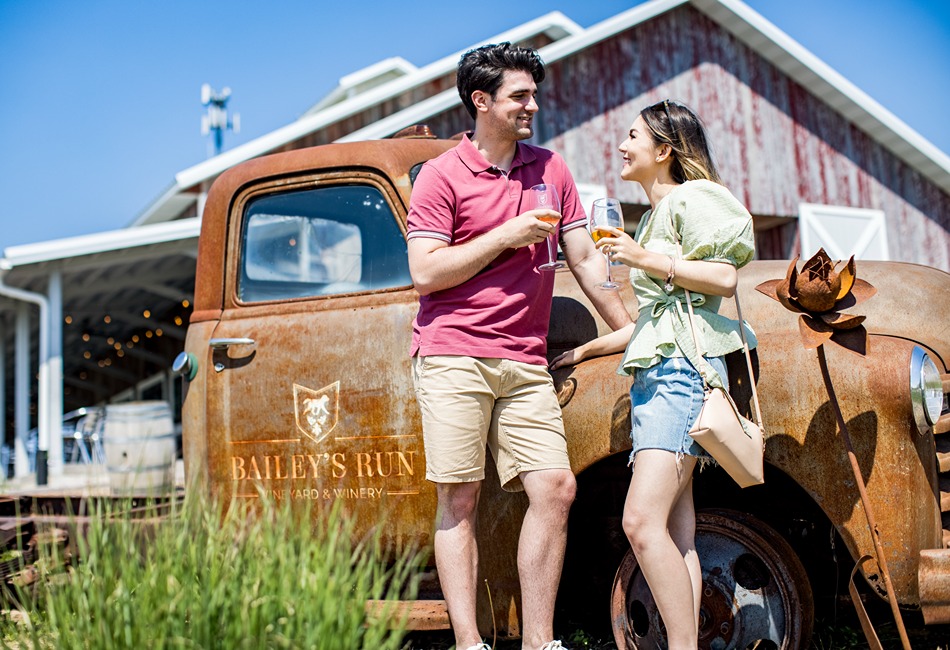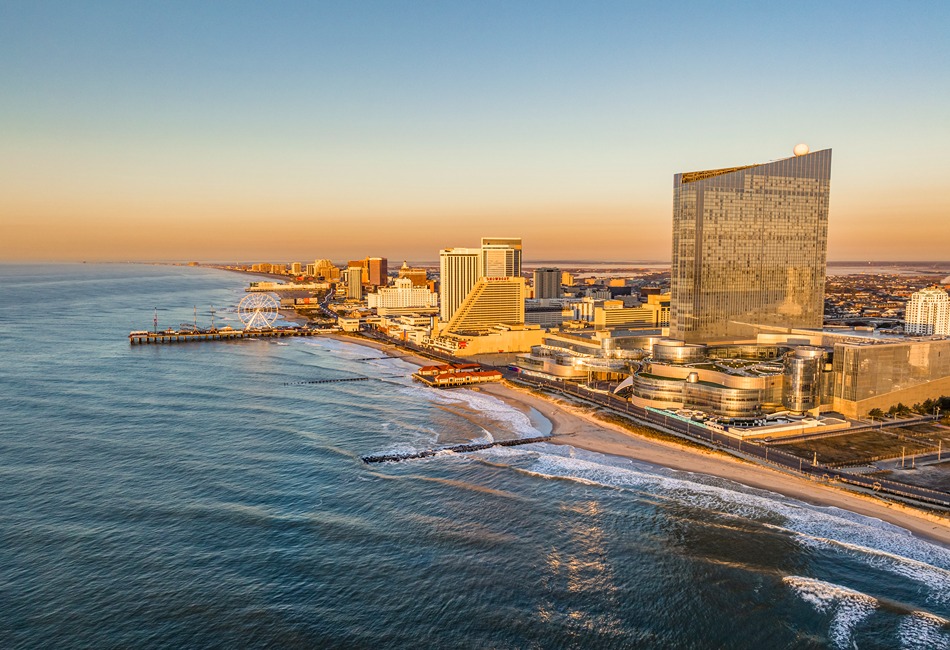Recreational cooking for groups is a popular pastime, and what better way to experience local flavors than with these New England cooking schools
One way for groups to experience a destination like a local is to step into a kitchen. With a hands-on experience from one of these New England cooking schools, groups can make memories and their own delicious delicacies as part of your itinerary.
Vermont
New England simmers with recreational cooking classes, first-hand experiences and even food-centric workshops. All welcome groups to whisk, fold, toast or roast local fare to dine on-site and “take-out” a memory to recreate at home. Keith McManis, director of sales & marketing at The Essex Resort & Spa in Essex, Vermont, says the resort’s cooking academy is a big draw for groups.
“All classes are suitable for leisure groups,” said McManis, adding that larger groups outside the typical eight to 12 participants can be easily arranged. Courses include Vermont-centric themes like Garden Harvest Party and Surf & Turf. Class takeaways: Vermont maple adds a flavor layer to a vinaigrette served with Vermont Goat Cheese and kicks up the profile of pan-roasted Statler chicken when added with ginger. And, there’s a dessert of Maple stout cake.
Connecticut
In adjacent Connecticut, Heide Lang, founder and culinary director at The Fig Cooking School, calls her classes “recreational cooking.” Keeping students in the mix is her signature at the school’s renovated storefront location. Find The Fig in the coastal village of Milford, Connecticut on Long Island Sound, about an hour north of the borough of Manhattan in New York City.
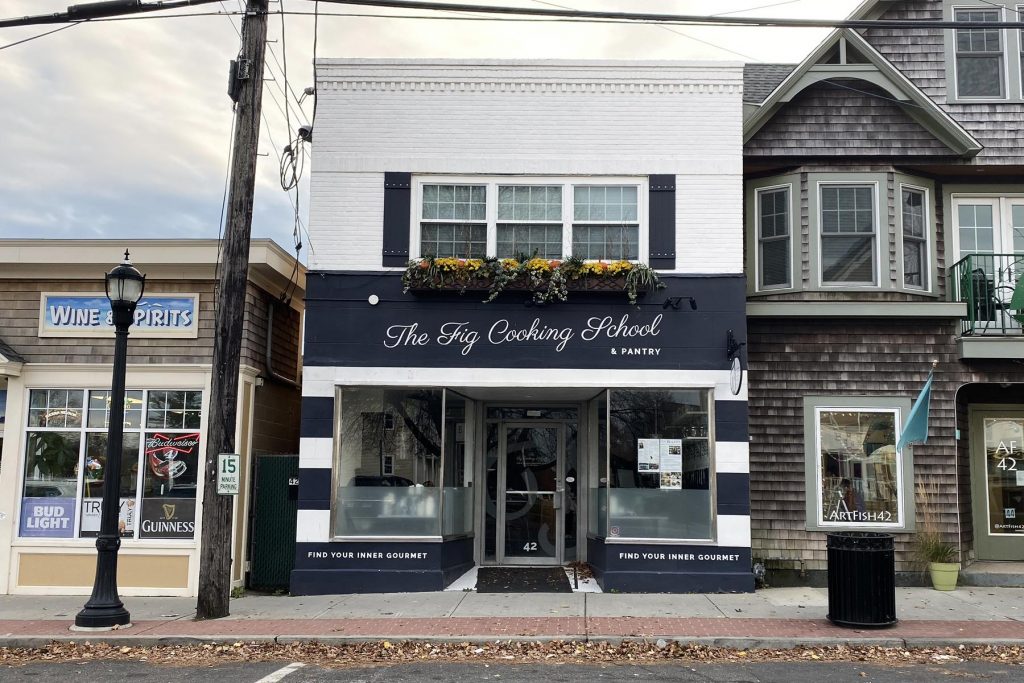
The Fig Cooking School
Yankee Magazine named The Fig Cooking School & Pantry as one of the Top 10 Best New England Cooking Schools. And with good reason: Lang. Trained at the French Culinary Institute in New York, Lang developed her culinary identity by balancing a formal education with memories of home-cooked meals. She blends both into classes tailored for a group; her teaching kitchen can accommodate up to 45 guests.
“The best part of my job is to watch the group work to create a fabulous meal and then to sit and watch the joy as they experience the meal together,” said Lang. “I also love the ‘a ha’ moments when people learn a new technique or ingredient and they are inspired to cook a new way when they go home.”
Sample menu? The Farmers Market Favorite class includes easy-to-find ingredients: Quiche with summer veggies, roasted tomato caprese and mesclun-argula salad with tarragon vinaigrette plus chocolate-chip strawberry shortcakes. Lang customizes classes based on the interest of the group. “Many groups choose our French, Italian or Mexican themes,” she said.
Massachusetts
Across the state line in Massachusetts, the ArtEpicure Cooking School celebrates the synergy between art and cuisine. Located among artist studios and galleries in the Brickbottom Artists Building in Somerville, Chef Mark DesLauriers welcomes groups in increments of 14 for a hands-on class, cooking demonstration or a themed dinner. Customized classes are a specialty. DesLauriers offers a class called Southern Cooking for Yankees that blends a bit of history of the cuisine and often the food science involved.
Because many groups traveling in New England have little exposure to actual Southern cooking, ArtEpicure created a class in southern cooking. Groups learn the basics about Southern fried chicken, herbed cheese grits, collard greens and pecan chocolate-chip pie; make them and then settle in for a Southern dining experience. Be sure to nosh before arriving as it takes a few hours for the meal to be prepped before serving.
Rhode Island
In Cranston, Rhode Island, Chef Walters Cooking School (CWCS) offers recreational cooking classes that combine innovation with classic methods. Credit Master Chef Walter Potenza and his award-winning school with the Mediterranean Diet 21 — live well through food. The major ingredient at his award-winning school is fun — and no note taking. The class cooks with a chef and after the class, the recipes are emailed. Recipes are seasonal and depend on local markets and purveyors. CWCS is home to the largest program of hands-on recreational cooking and cooking-related classes in Rhode Island. Groups choose from cooking classes from regional Italian cookery to farmer’s market favorites and comfort food classics.
Maine
Further north in Maine, Salt Water Farm opens its seaside doors for smaller cooking classes under the tutelage of founder and chef Annemarie Ahearn. Class size restriction may require dividing the group into several classes. The smaller size helps everyone in getting to know each other. Classes include, but are not limited to, making pasta, a Penobscot Bay bouillabaisse, baking pies (from scratch) or bread. All courses are sourced locally, taking advantage of seaside produce and product. Many use traditional New England cooking techniques. Classes on the farm prepare students to enjoy making the recipes and to recreate them at home using their area’s hyper-local ingredients. This allows groups to take a bit of the Salt Water Farm and memories of New England with them.
By Mary Lu Laffey
Did you enjoy this article on New England cooking schools? Get more group travel inspiration delivered directly to your inbox by subscribing for FREE to Leisure Group Travel.

